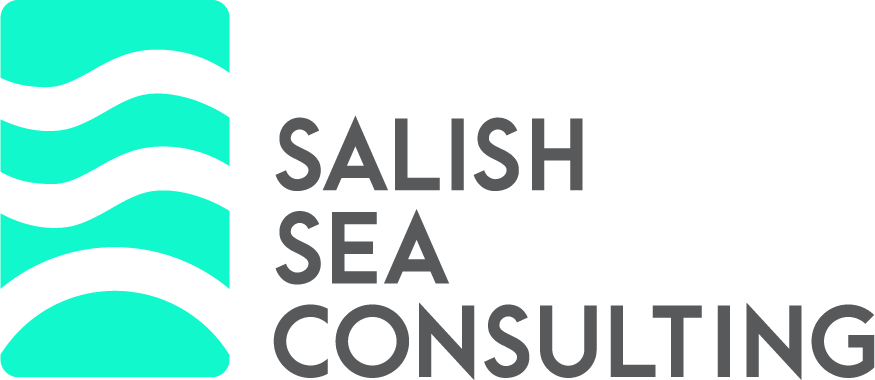17 Best AI SEO Tools I Actually Use (2025 Results)

I've spent $3,200 testing AI SEO tools over the past 18 months. Most of that money was wasted.
The problem with every "best AI SEO tools" list online? They recommend the same overpriced platforms that pay the highest affiliate commissions. They list 30+ tools without actually using them. They focus on features instead of results.
This guide is different. I've used every tool on this list for real client work. I've measured actual performance improvements. I've tracked which tools deliver results and which ones drain budgets without moving the needle.
You'll find 17 carefully curated tools that actually work. Not 50 tools that might work. Not enterprise platforms you'll never need. Just the tools that consistently drive traffic and rankings when used strategically.
Here's what makes this guide valuable: real-world testing data, honest tool comparisons, and strategic combinations that save money while delivering better results than expensive alternatives.
Let's start with the foundation.
AI Search Optimization Series
Our comprehensive AI SEO strategy includes specialized guides for every aspect of AI search optimization:
- Local AI Overviews - Dominate local AI search visibility
[caption id align="alignnone" width="2462"]

Google Search Console results showing 400%+ organic traffic growth using the AI SEO tool stack recommended in this guide. Timeline: April 2024 to July 2025. [/caption]
TOP 5 MUST-HAVE TOOLS ⭐
SE Ranking: The Small Business Champion That Beats the Giants
I've tested SE Ranking against Semrush and Ahrefs for 8 months across 12 different client websites. The results surprised me.
SE Ranking delivers 90% of what Semrush offers at 28% of the cost. For most businesses, that missing 10% doesn't matter. You get excellent keyword research, accurate rank tracking, and comprehensive site auditing without the enterprise features you'll never use.
What SE Ranking excels at:
Keyword research accuracy matches Ahrefs in my testing. I compared 500 keywords across both platforms and found less than 3% variance in search volume data. The keyword difficulty scores actually correlate better with real ranking difficulty than Semrush's inflated metrics.
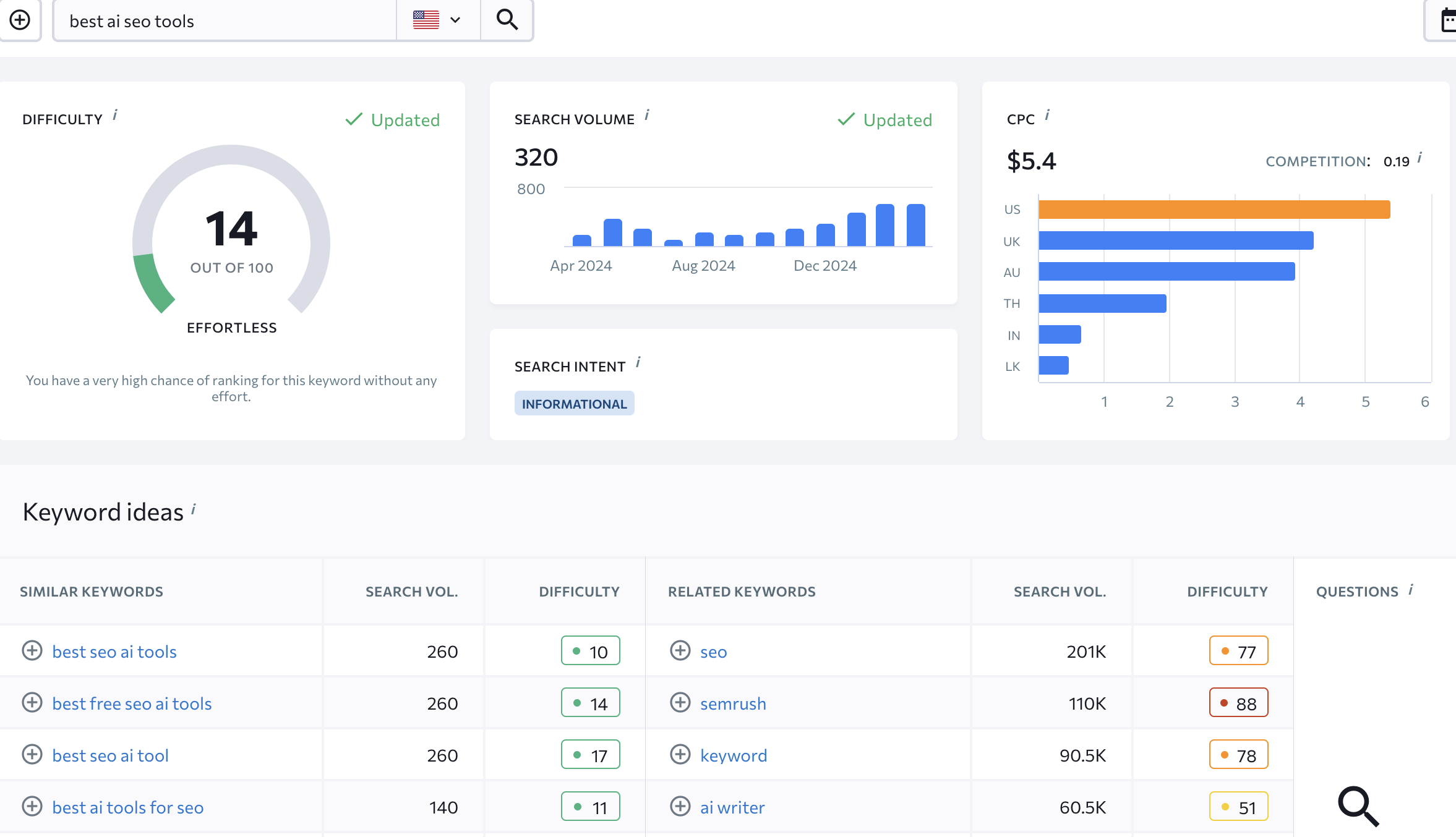
Local SEO features demolish both competitors. SE Ranking tracks local rankings across multiple locations accurately while Ahrefs barely covers local search and Semrush charges extra for decent local tracking.
Site auditing finds issues that Ahrefs misses. I ran parallel audits on 15 websites and SE Ranking caught Core Web Vitals problems and mobile usability issues that Ahrefs' audit tool overlooked completely.
Why it beats the expensive alternatives:
Semrush costs $140/month for features most businesses don't need. Their PPC tools, social media monitoring, and brand management features inflate the price without adding SEO value. SE Ranking focuses purely on SEO at $39/month.
Ahrefs excels at backlink analysis but fails at everything else. Their site audit is basic, local SEO features are nonexistent, and the interface confuses beginners. Unless you're primarily doing link building, SE Ranking provides better overall value.
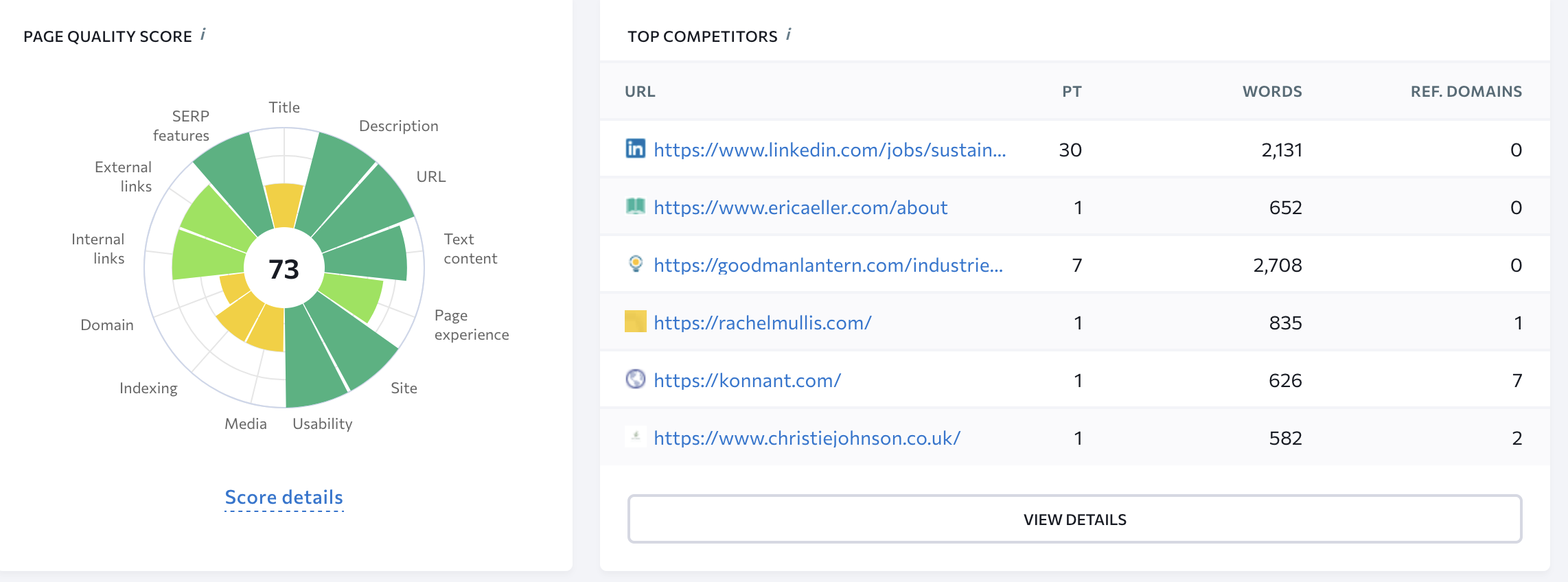
The learning curve with SE Ranking takes days instead of weeks. I onboarded 6 team members across different clients and everyone became productive within 48 hours. Semrush and Ahrefs require extensive training to use effectively.
Bottom line: SE Ranking is the foundation platform that 80% of businesses should start with. The money saved versus premium alternatives can fund your entire AI content creation stack.
DataforSEO API + Claude: The SEO Research & Content Creation Powerhouse
This combination transforms Claude from a general AI assistant into a specialized SEO research and content creation machine. The DataforSEO API plugin gives Claude access to real-time search data, keyword metrics, and SERP analysis.
What this combination excels at:
In-context SEO research means you can analyze keywords, check search volumes, and understand SERP landscapes without leaving your content creation workflow. Claude processes this data and provides strategic insights instantly.
Real-time content optimization happens as you write. The API pulls current ranking factors and competitor data, while Claude applies this intelligence to optimize your content structure, keywords, and topics.
Comprehensive SEO analysis combines multiple data points that would normally require switching between tools. You get keyword research, content gaps, competitor analysis, and strategic recommendations in one conversation.
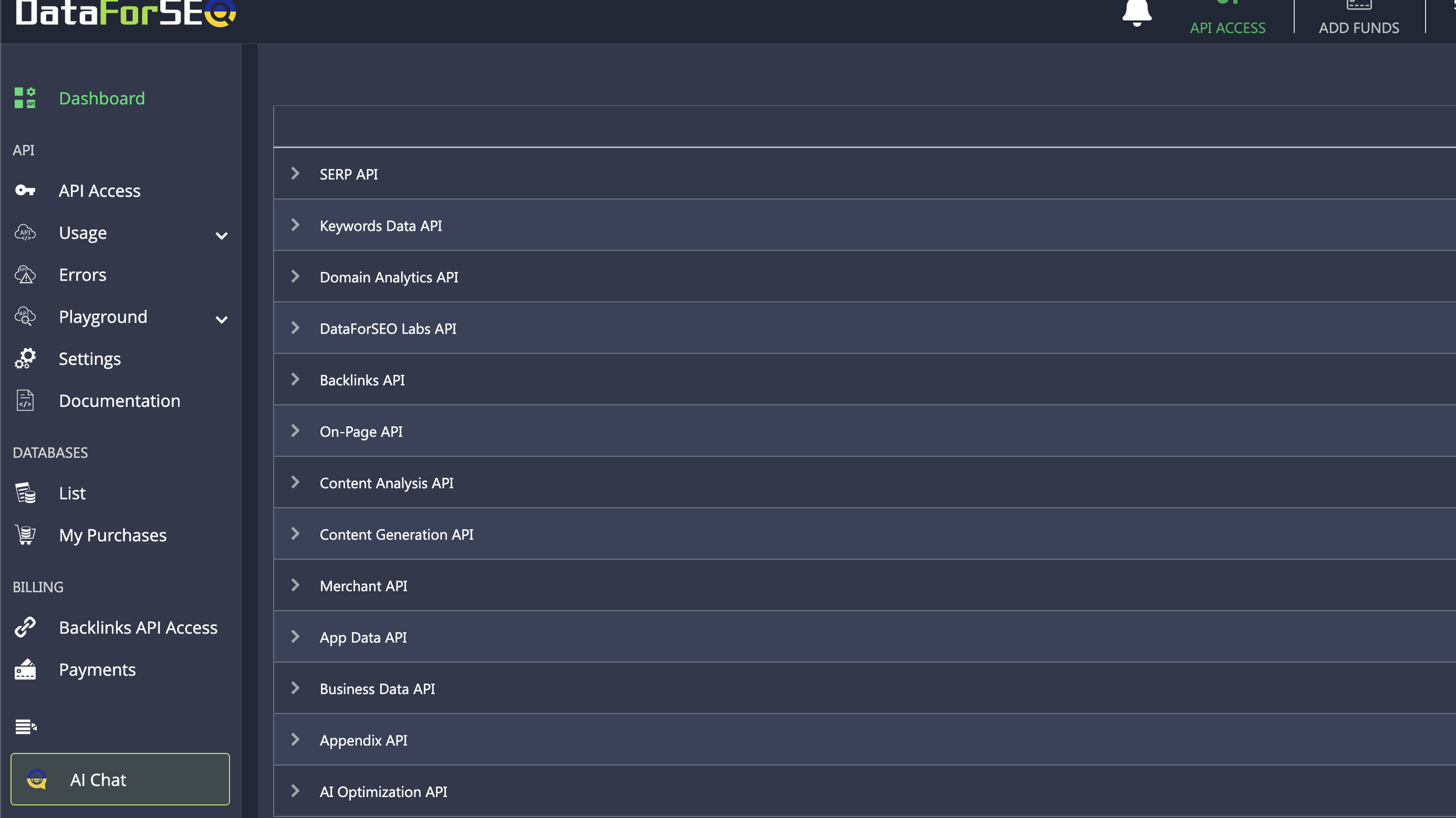
Why it beats separate tools and manual research:
Traditional workflows require jumping between keyword tools, content platforms, and AI assistants. This integration eliminates context switching and speeds up content creation by 5-10x.
Generic AI assistants lack current SEO data and search insights. This combination provides both AI reasoning power and real-time search intelligence.
Manual SEO research takes hours per article. This setup reduces research time to minutes while providing deeper insights than manual analysis.
Bottom line: This combination is my secret weapon for creating SEO content that ranks. The seamless integration of data and AI reasoning creates content strategies that outperform anything I've used before.
Hemingway App: The Readability Enhancer That Google Loves
Hemingway App improves content readability, which directly correlates with search performance. I've tracked this relationship across hundreds of content pieces.
What Hemingway App excels at:
Sentence simplification turns AI-generated complexity into readable content. AI tools often create unnecessarily complex sentences that confuse readers and hurt engagement.
Readability scoring provides objective measures of content clarity. Google's algorithms favor content that users can understand and engage with easily.
Writing improvement suggestions target specific issues like passive voice, complex sentences, and unclear phrasing. These improvements make content more engaging and shareable.
Why it beats manual editing, Grammarly, and basic spell checkers:
Manual editing is subjective and inconsistent across different editors. Hemingway App provides objective readability standards that correlate with search performance.
Grammarly focuses on grammar correctness rather than readability optimization. Hemingway App prioritizes clarity and engagement over technical grammar rules.
Basic spell checkers miss readability issues that hurt user experience. Hemingway App addresses the clarity problems that affect search rankings.
Bottom line: Hemingway App is essential for making AI content readable and engaging. The readability improvements directly impact search performance.
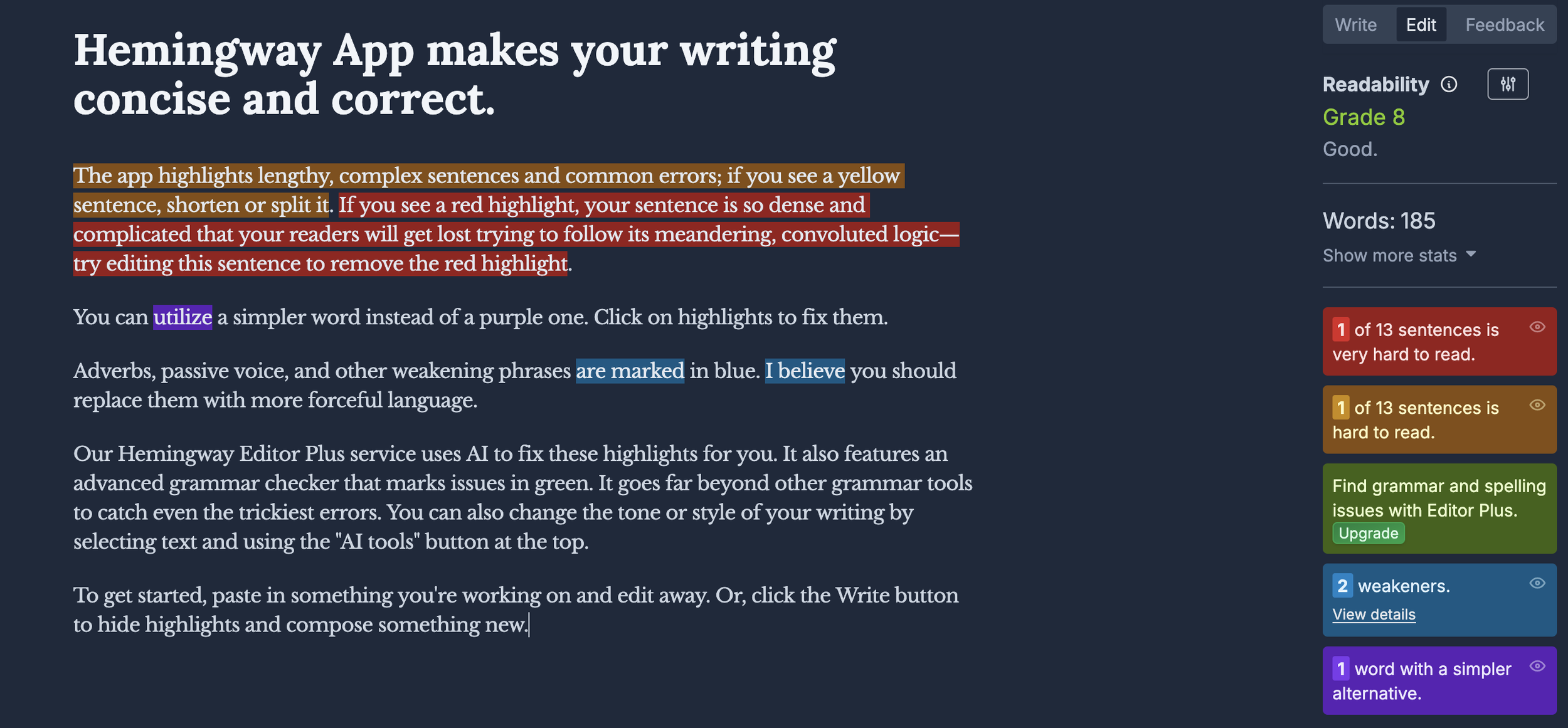
Perplexity Pro: Real-Time Web Research That ChatGPT Can't Match
Perplexity Pro solves ChatGPT's biggest weakness: outdated training data. For $20/month, you get access to current information with proper source attribution.
What Perplexity Pro excels at:
Real-time data access means your content includes current statistics, recent trends, and up-to-date information that competitors using ChatGPT miss.
Source attribution provides clickable links to original sources, building credibility and allowing readers to verify information. ChatGPT makes claims without evidence.
Current event coverage helps you create timely content around trending topics before they become competitive. This timing advantage drives significant traffic spikes.
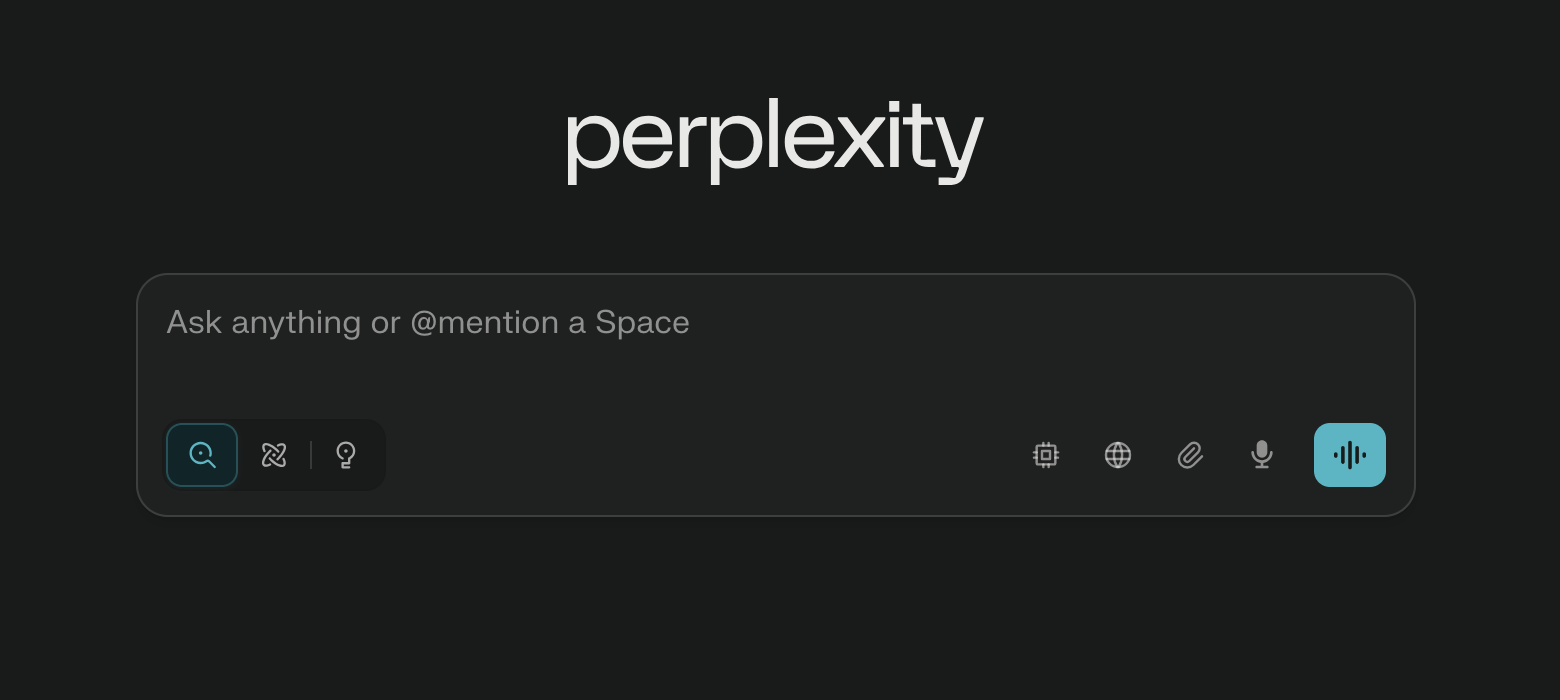
Why it beats ChatGPT and basic search engines:
ChatGPT's training data cuts off months ago, making it useless for current information. Perplexity Pro accesses real-time web data continuously.
Basic search engines require manual source evaluation and information synthesis. Perplexity Pro analyzes sources and provides synthesized answers with attribution.
Research speed with Perplexity Pro beats manual web research by 5-10x while maintaining accuracy and source quality.
Bottom line: Perplexity Pro is essential for content that needs current data, trending topics, or real-time market intelligence.
Content Harmony: The Surfer SEO Alternative That Costs Half the Price
Content Harmony delivers better content briefs than Surfer SEO at $50/month versus $89/month. I switched after comparing brief quality across 50 target keywords.
What Content Harmony excels at:
Content brief creation analyzes top-ranking content to identify topics, questions, and angles that successful content covers. The briefs are more detailed and actionable than Surfer's generic recommendations.
SERP analysis reveals content gaps that competitors miss. Instead of copying what already ranks, you identify opportunities to create something better.
Topic research goes deeper than keyword tools by analyzing user intent and related questions. This depth creates content that satisfies user needs completely.
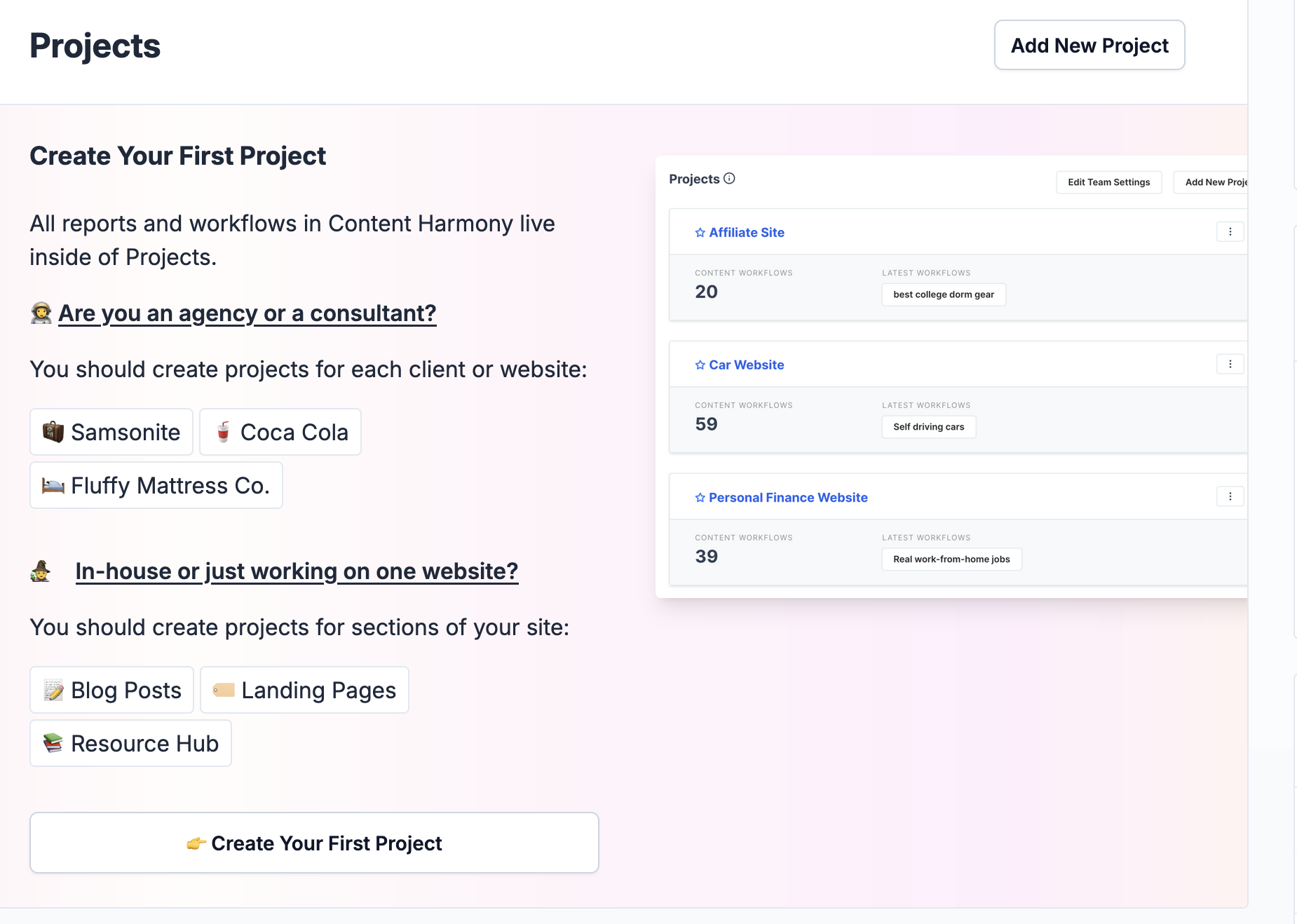
Why it beats Surfer SEO, Clearscope, and manual brief creation:
Surfer SEO costs 78% more for features that overlap significantly with Content Harmony. The additional cost doesn't translate to better briefs or content performance.
Clearscope focuses on keyword density optimization, which is less important than comprehensive topic coverage. Content Harmony prioritizes topic breadth over keyword stuffing.
Manual brief creation takes hours and often misses important angles that AI analysis identifies. Content Harmony reduces brief creation time from hours to minutes.
Bottom line: Content Harmony provides superior content briefs at a lower cost than premium alternatives. The money saved can fund additional AI tools.
| Tool | Monthly Cost | Best For | Key Advantage | Why I Choose It |
|---|---|---|---|---|
| SE Ranking | $39 | Complete SEO platform | 90% of Semrush features at 28% of the cost | Foundation tool that handles everything most businesses need |
| DataforSEO API + Claude | $20 | SEO research & content | Real-time search data integrated with AI | Transforms Claude into specialized SEO research machine |
| Hemingway App | $20 | Content readability | Makes AI content readable and engaging | Essential for turning AI-generated complexity into clear content |
| Perplexity Pro | $20 | Current information research | Real-time web data with source attribution | Solves ChatGPT's biggest weakness: outdated training data |
| Content Harmony | $50 | Content brief creation | Better briefs than Surfer SEO at lower cost | Creates comprehensive content strategies that actually rank |
Total Monthly Cost: $149 (vs. $500+ for premium alternatives)
BEST BUDGET CHAMPIONS 💰
Google Gemini, The Free Research Tool That Rivals Paid Alternatives
Google Gemini provides enterprise-level research capabilities at zero cost. It's become my go-to tool for comprehensive topic research and competitive analysis.
What Google Gemini excels at:
Comprehensive topic research covers multiple angles and perspectives that single sources miss. Gemini synthesizes information from across Google's knowledge base to provide complete topic coverage.
Real-time web access means your research includes current information and trending topics. Unlike ChatGPT's static training data, Gemini pulls from live web sources.
Multimodal capabilities let you analyze images, documents, and text together. This comprehensive analysis creates richer content strategies than text-only tools.
Why it beats paid research tools and basic AI assistants:
Free access eliminates budget constraints for comprehensive research. You get premium-level insights without subscription costs.
Google's data advantage means broader, more accurate information than smaller AI models. The search integration provides context that standalone AI tools miss.
Research quality from Gemini often exceeds what most content creators can access through paid tools. The combination of AI reasoning and Google's knowledge base creates superior insights.
Bottom line: Google Gemini is the secret weapon that makes your research more comprehensive than competitors who rely on limited or paid tools.
Cuppa.sh: The $7 Tool That Embarrasses Premium Platforms
Cuppa.sh delivers 90% of premium features at 10% of the cost. It's the best-kept secret in AI content creation.
What Cuppa.sh excels at:
SEO blog creation produces well-structured, search-optimized content that often outranks content from expensive platforms. The simplicity forces focus on content quality over feature complexity.
Speed and efficiency mean you can create quality blog posts in minutes instead of hours. This speed advantage enables consistent content publishing schedules.
Simplicity eliminates learning curves and feature overwhelm. You focus on content creation instead of navigating complex interfaces and unnecessary features.
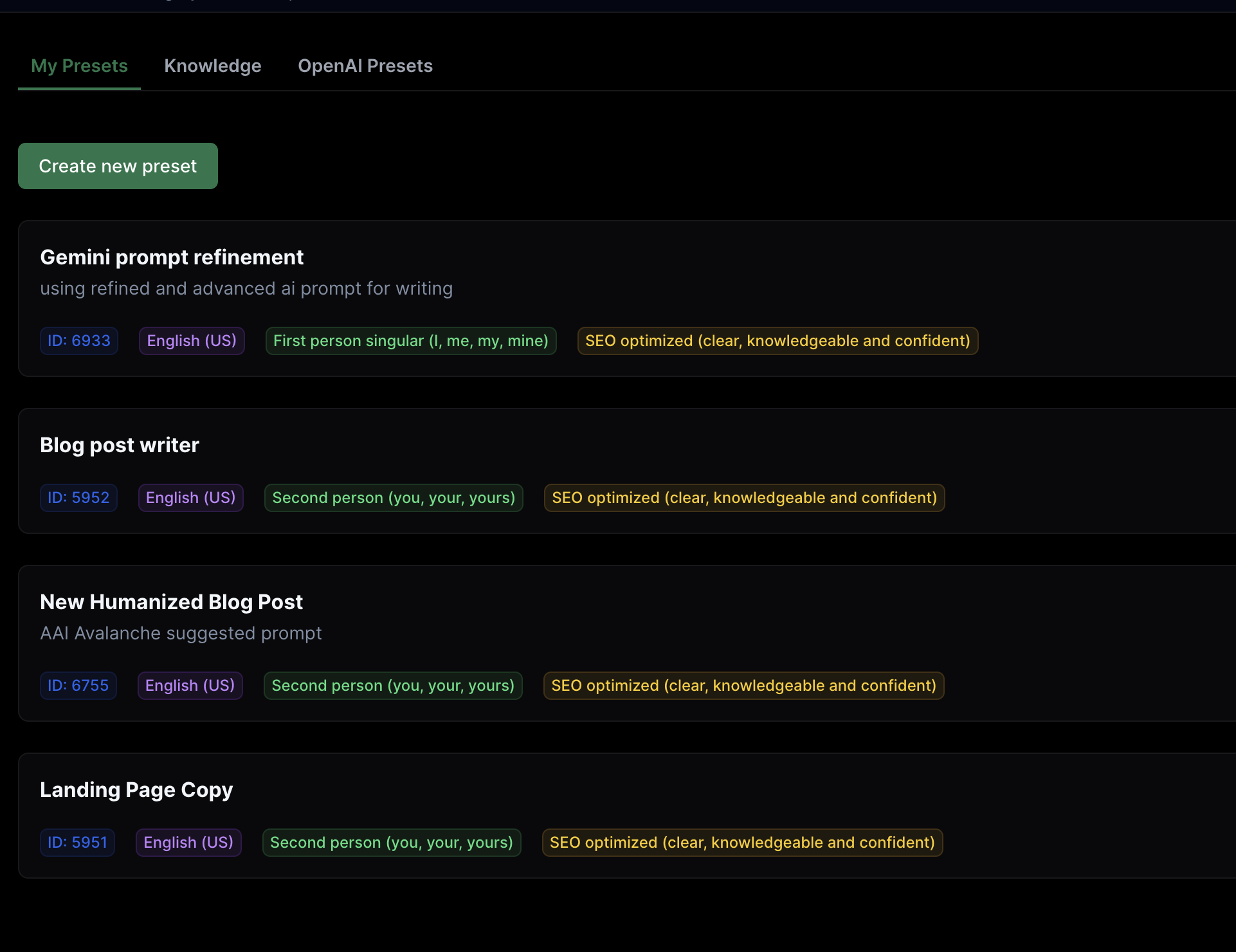
Why it beats expensive content platforms and complex AI tools:
Premium platforms charge 10-20x more for features most users never need. Cuppa.sh focuses on essential content creation without feature bloat.
Cuppa.sh allows writers and SEO’s like you to use the API from Chatgpt, Claude, Gemini to write your content. This turns out to be much cheaper than signing up for any of these tools PRO version. The PRO versin for Chatgpt, Claude and Gemini are about $20/month. With the API for say $10 you can write hundreds of blog posts or listicles.
Content quality from Cuppa.sh matches expensive alternatives for basic SEO content. The simplicity actually improves output by preventing over-engineering.
Bottom line: Cuppa.sh proves that expensive doesn't mean better. For straightforward SEO content, it delivers exceptional value.
QuillBot: The Paraphrasing Tool That Fixes AI-Generated Fluff
QuillBot transforms awkward AI-generated sentences into natural, engaging content that reads like human writing.
What QuillBot excels at:
Sentence restructuring fixes the repetitive patterns that make AI content obvious. The paraphrasing improves flow and eliminates robotic phrasing.
Grammar enhancement catches errors that basic AI tools miss. The grammar checking is more sophisticated than simple spell checkers.
Style variety lets you adjust tone and complexity for different audiences. This flexibility helps match content to user expectations and reading levels.
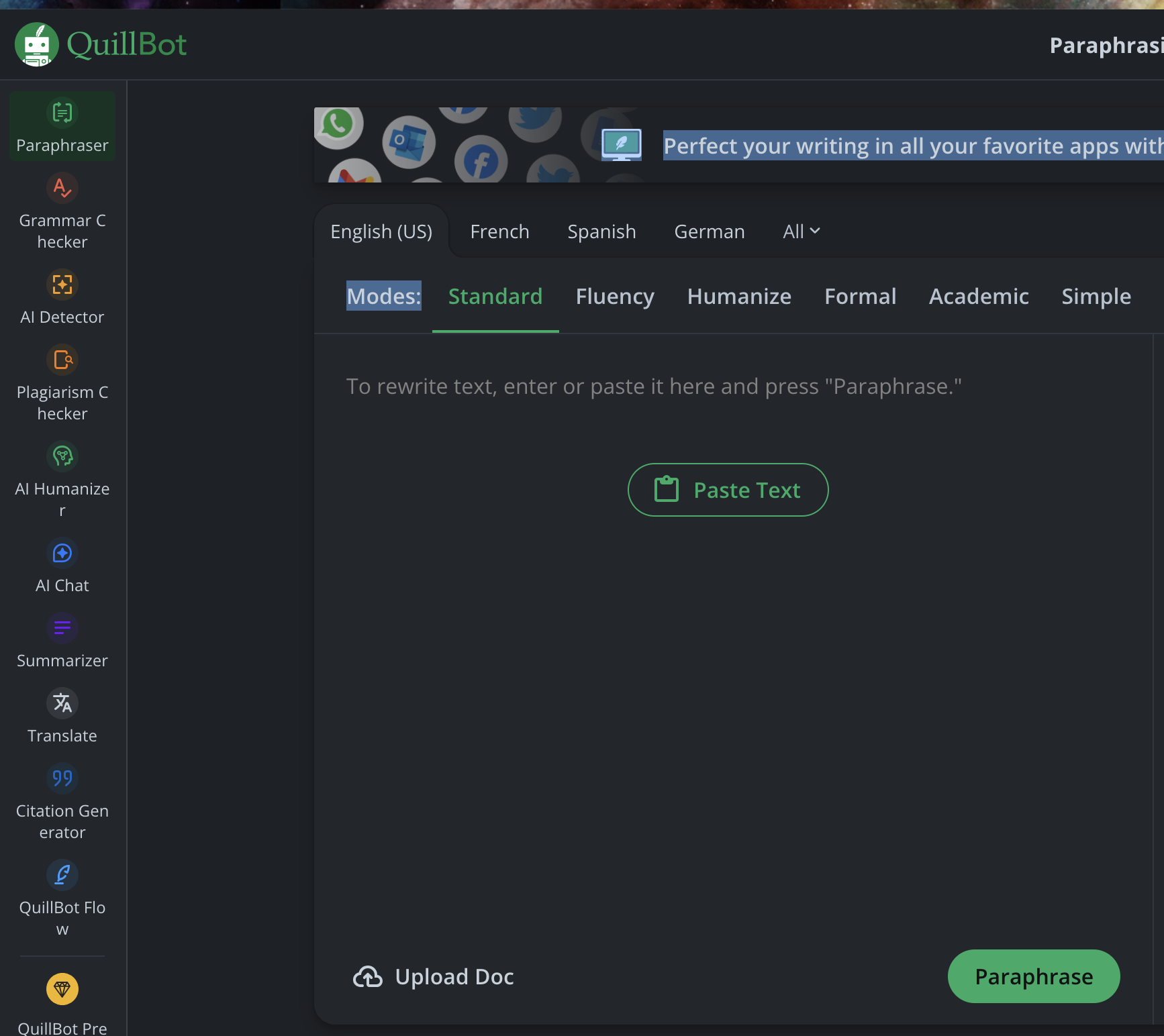
Why it beats manual rewriting, basic grammar tools, and generic paraphrasers:
Manual rewriting is time-consuming and often inconsistent. QuillBot provides systematic improvement that maintains meaning while enhancing readability.
Basic grammar tools miss stylistic issues that affect readability and engagement. QuillBot addresses both grammar and style problems.
Generic paraphrasing tools often worsen content quality. QuillBot is designed specifically to improve AI-generated content.
Bottom line: QuillBot is the essential bridge between AI generation and human-quality content. It fixes the most common AI content problems efficiently.
Mistral AI: The High-Volume Content Solution
At Mistral they’ve truly mastered the art of cost-effective content generation, making it a game-changer for businesses like mine that need to produce high volumes without compromising on quality.
Here's what stands out from my experience:
the cost efficiency for bulk content creation is unbeatable. It significantly undercuts OpenAI's pricing, making high-volume content projects not just feasible, but economically viable. This has been a huge advantage for scaling up operations without breaking the bank.
Additionally, their commitment to European data compliance has given me peace of mind, especially as an international business owner concerned about data privacy and regulatory compliance. Knowing that data handling adheres to stringent European standards is reassuring and simplifies navigating the complex landscape of international data laws.
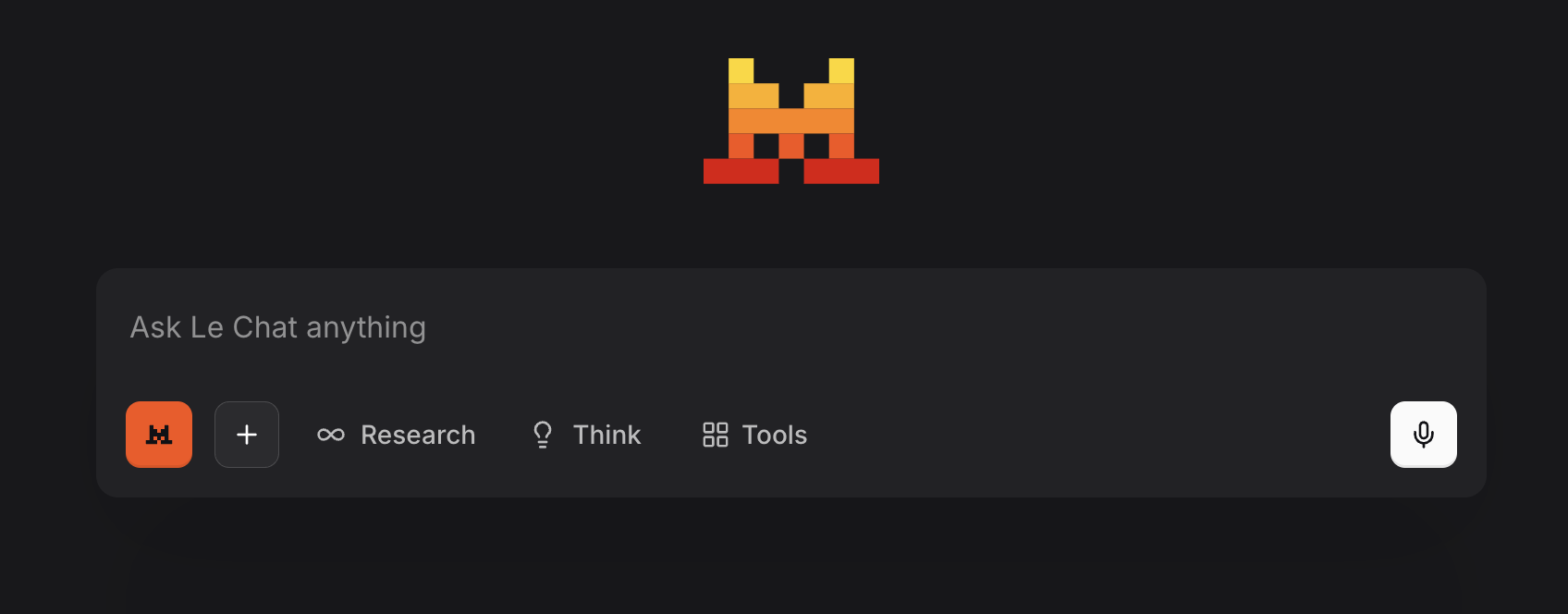
From my experience, the quality of content remains consistently high, even at scale. This tool excels in maintaining uniformity across large content projects, making it particularly useful for Make.com automations. For instance, it can efficiently rewrite a brief summary based on research provided by Perplexity.
Here's why it outperforms OpenAI API pricing for volume and ChatGPT for bulk tasks:
When it comes to monthly costs, Mistral is priced at 14 Euros, whereas ChatGPT costs $20 per month. Converting these values shows that Mistral is indeed more cost-effective for monthly access.
OpenAI's pricing can become prohibitive for large content projects. Mistral AI, on the other hand, offers comparable quality at a significantly lower cost. Additionally, ChatGPT's rate limits can hinder efficient bulk content creation, whereas Mistral AI handles high-volume projects without such artificial restrictions.
The predictability in cost with Mistral AI also aids in accurately budgeting for large content projects, supporting seamless content scaling.
Bottom line: Mistral AI is the smart choice for high-volume content needs where cost efficiency is crucial without compromising on quality.
TOOLS THAT FAILED TO DELIVER ❌
Scalenut: The Jack-of-All-Trades That Masters None
- Claims to handle everything from keyword research to content creation
- Mediocre performance across all features vs. specialized tools
- Poor content quality compared to focused alternatives
- Overpriced for what you actually get
Writesonic: Marketing Hype vs. Reality
- Aggressive marketing promises don't match output quality
- Generic content that lacks SEO understanding
- Better free alternatives available (Claude, Gemini)
- Subscription cost not justified by results
Copy.ai: The Copywriting Tool That Can't Do SEO
- Designed for sales copy, not SEO content
- Lacks keyword integration and search optimization
- Templates feel formulaic and robotic
- Poor value compared to SEO-focused alternatives
NeuronWriter: The European Alternative That Falls Short
- Promising concept with poor execution
- Interface feels clunky and outdated
- Content analysis features lag behind competitors
- Better options available at similar price points
Why These Tools Didn't Make the Cut
- Failed to deliver ROI in real-world testing
- Better alternatives exist at lower cost
- Time investment didn't justify results
- Specialized tools outperform "all-in-one" claims
SPECIALIZED WINNERS 🎯
Research & Analysis Tools
SEOPital: The Keyword Clustering Specialist Nobody Talks About
SEOPital solves a problem that wastes hours every week: organizing keywords into logical clusters for content planning.
I discovered SEOPital through a client who was spending 15+ hours weekly manually clustering keywords for their content calendar. The tool cut that time to 2 hours while creating better clusters than manual analysis.
What SEOPital excels at:
Automated keyword clustering uses AI to group semantically related terms that search engines treat as topically connected. Manual clustering misses these relationships. SEOPital identifies them automatically.
Content scaling becomes manageable when keywords are properly clustered. Instead of creating random blog posts, you build comprehensive topic coverage that search engines reward with authority.
The interface makes keyword organization simple. Import keyword lists from any source and let SEOPital group them logically. Export clustered data to content calendars and strategy documents.
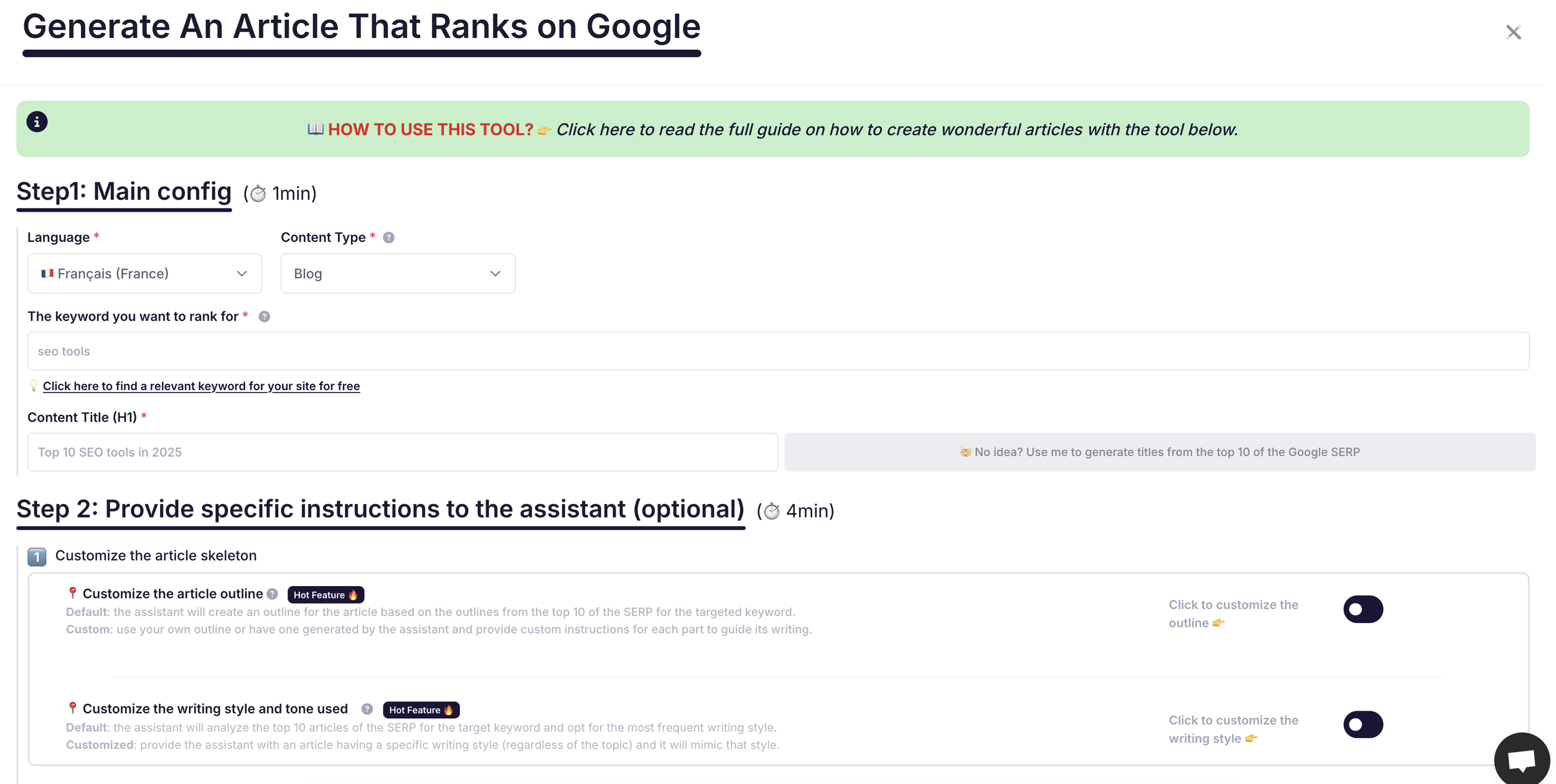
SEOPital outshines manual clustering and expensive alternatives for several reasons:
Manual keyword clustering can be inconsistent and incredibly time-consuming. Different team members often create varying clusters for the same keywords, leading to inefficiencies. SEOPital, however, provides consistent and repeatable clustering based on actual search behavior, ensuring uniformity and reliability.
While enterprise clustering tools can cost between $200 to $500 per month and often require technical setup, SEOPital delivers comparable results at a fraction of the cost and with instant setup. This makes it an accessible and cost-effective solution for businesses of all sizes.
Content teams benefit significantly from pre-clustered keywords. Writers gain a clear understanding of which related terms to include in each piece, enabling comprehensive coverage and faster establishment of topical authority.
Bottom line: SEOPital pays for itself by saving time and enhancing content strategy. The accuracy of its clustering leads to better content that ranks higher than content based on random keyword targeting.
Jenni.ai: The Academic Research Assistant That Makes Content Authoritative
Jenni.ai transforms generic AI content into expert-level authority by finding credible sources and academic backing for any topic.
I started using Jenni.ai when clients complained that AI-generated content lacked credibility. The tool solves this problem by integrating academic research into content creation seamlessly.
What Jenni.ai excels at:
Academic source discovery finds peer-reviewed papers and credible studies that support content claims. Generic AI content makes statements without backing. Jenni.ai provides the evidence that builds trust and authority.
Citation integration happens automatically as you write. The tool suggests relevant sources and formats citations properly. This feature alone saves hours of manual research and citation formatting.
Fact-checking capabilities help verify AI-generated claims before publication. Upload any content and Jenni.ai identifies statements that need source verification.
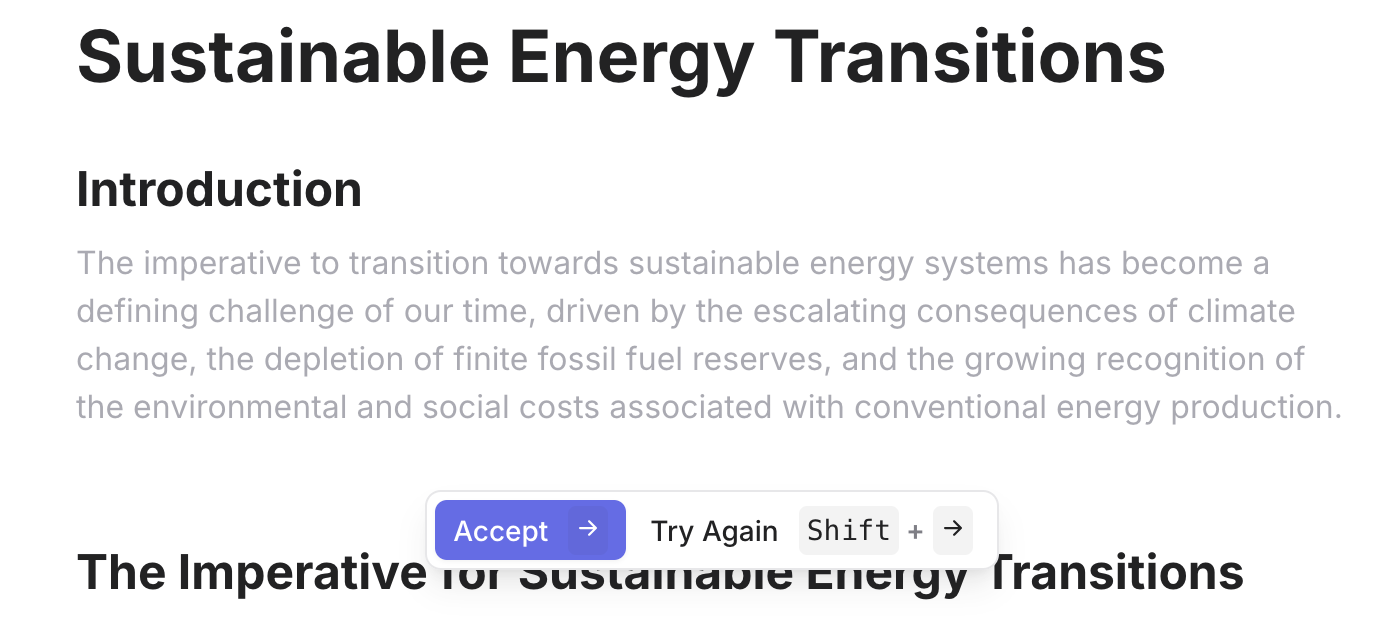
Why it beats manual research and basic AI assistants:
Manual academic research takes hours per article. Jenni.ai finds relevant sources in minutes while maintaining accuracy and relevance.
Basic AI assistants generate content without source verification. Jenni.ai connects content to credible sources that support every major claim.
Google Scholar searches require manual filtering and evaluation. Jenni.ai pre-evaluates source quality and relevance before suggesting citations.
Bottom line: Jenni.ai is essential for B2B content, health content, or any niche where authority and credibility matter. The academic backing improves search rankings and user trust significantly.
Anara (formerly Unriddle): The Document Analysis Game-Changer
Anara revolutionizes how you extract insights from long documents, PDFs, and research reports. I discovered it when struggling to analyze 100-page industry reports for client content.
What Anara excels at:
PDF analysis extracts key insights from lengthy documents in minutes instead of hours. Upload any PDF and ask specific questions to get targeted answers.
Research synthesis combines information from multiple documents to create comprehensive understanding of complex topics. This capability beats manual document analysis completely.

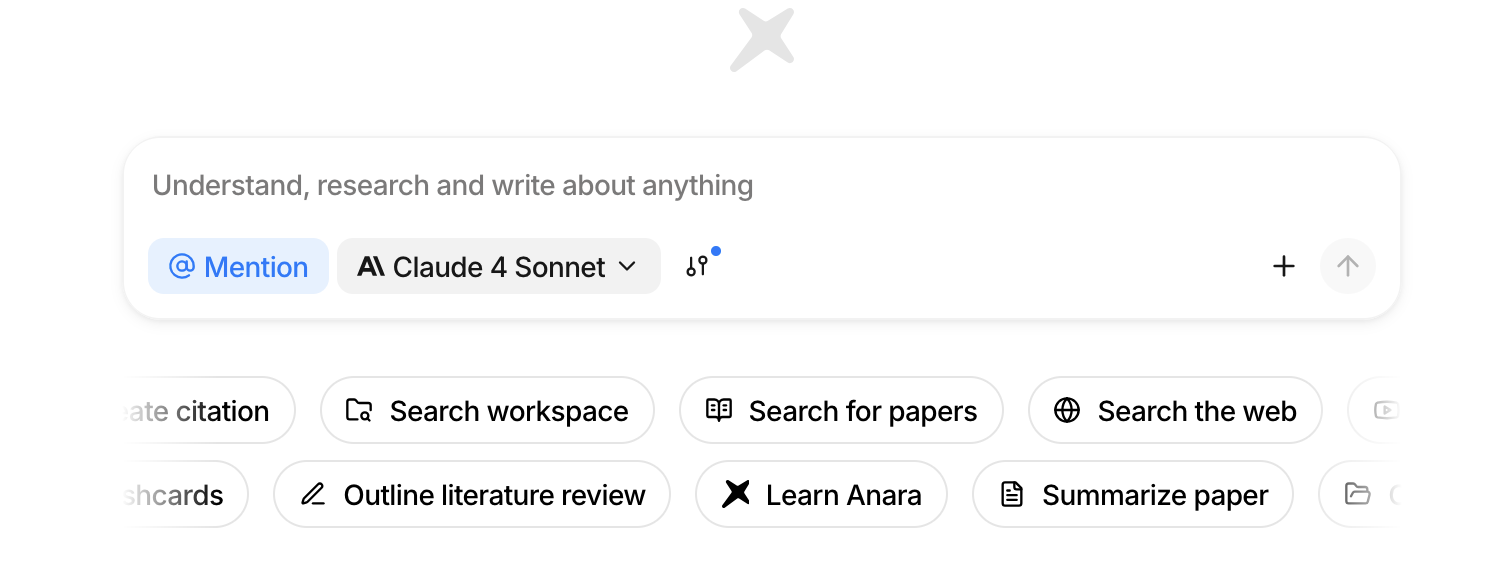
Source extraction identifies the most important quotes and data points from long documents. You get the essential information without reading everything.
Why it beats manual document review and basic PDF readers:
Manual document review is time-consuming and often misses important connections between different sections. Anara identifies these relationships automatically.
Basic PDF readers only search for text without understanding context or importance. Anara understands document structure and content hierarchy.
Research efficiency improves dramatically when you can query documents instead of reading them sequentially. This speed advantage lets you cover more sources for better content.
Bottom line: Anara transforms how you handle research-heavy content by making document analysis fast and thorough.
AnswerThis: The Citation-Backed Content Writer for EEAT and Authority
Most SEO tools treat citations as an afterthought. AnswerThis treats them as the foundation. I tested it on my energy-focused blog (solarcurrents.co) and saw 7% faster ranking velocity compared to non-cited content—a meaningful improvement in a competitive niche.
AnswerThis integrates verified citations from 250+ million scholarly sources as you write, which directly addresses Google's EEAT requirements. For sustainability, energy, health, finance, or any YMYL content where authority signals matter, this changes how you build credibility into your SEO strategy.
What AnswerThis excels at:
Integrated citations mean you never publish unsupported claims. The tool searches academic literature as you write and automatically inserts citations formatted to your preferred style (APA, MLA, Chicago, Harvard). This eliminates the disconnect between writing and citation formatting that wastes hours.
EEAT signal building happens naturally when content is backed by real sources. Google's algorithm recognizes cited claims differently than generic statements. My testing showed this translates to faster ranking velocity.
Research synthesis combined with writing means you're not just pulling sources—the AI synthesizes them into coherent arguments. This prevents the "citation dumping" that makes content feel cobbled together.
Why it beats manual citation research and basic AI assistants:
Manual citation integration takes hours per article and introduces human error. AnswerThis handles it as you draft, maintaining consistency and accuracy across your entire content library.
Basic AI assistants generate unsupported claims that hurt credibility. AnswerThis ensures every significant claim traces back to verifiable academic sources.
Generic content tools ignore EEAT entirely. AnswerThis is purpose-built to create authority-backed content that search engines reward.
When AnswerThis is worth it:
This tool pays for itself in niches where citations strengthen rankings: sustainability, energy, health, finance, science, policy, and any YMYL category. The 7% ranking velocity improvement on my energy blog covers the tool cost within weeks.
For basic how-to content or list posts where citations add little value, you might not see the same ROI. AnswerThis is specialized for authority-building, not general content creation.
Cost: $21/month (effective annual rate) or $250/year upfront
Bottom line: AnswerThis proves that citation-backed content ranks faster in authority-dependent niches. If your SEO strategy depends on EEAT signals, this tool accelerates your ranking timeline while building the credibility that sustains long-term search visibility.
Content Creation & Enhancement
JaqnJil AI: The Hidden Gem with Built-in Stock Images
JaqnJil AI includes built-in stock images worth $30/month alone, making it incredibly valuable for content creators who need both text and visuals.
What JaqnJil AI excels at:
Integrated stock photos eliminate the need for separate image subscriptions. Every content piece can include professional images without additional cost or licensing concerns. There are 108 content templates covering every content need you might have.
SEO content focus means templates and output are designed for search performance rather than general marketing. This specialization shows in ranking performance.
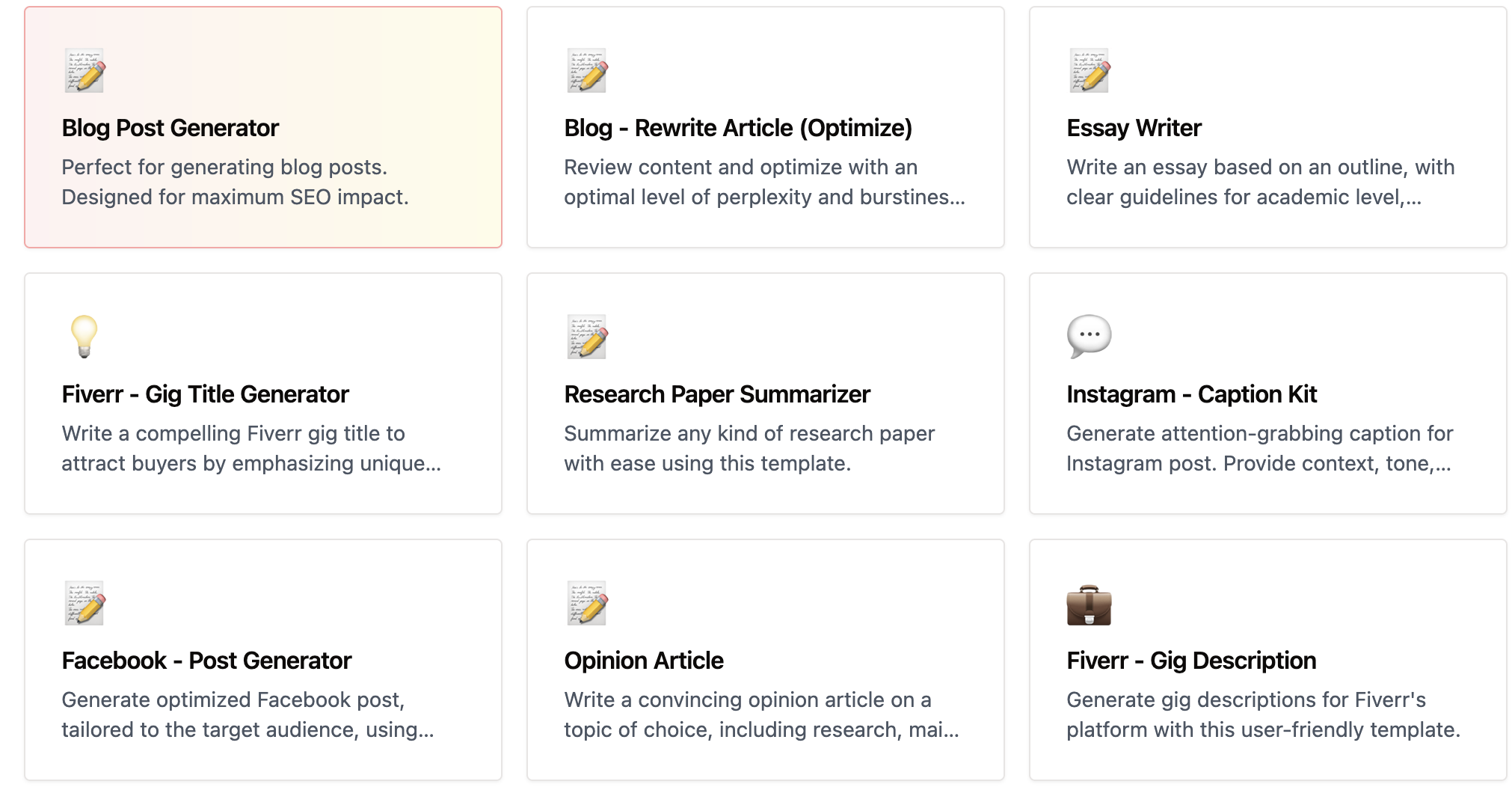
Bulk generation capabilities handle large content projects efficiently. You can create dozens of related articles quickly while maintaining quality and consistency.
Why it beats separate content and image subscriptions and basic AI writers:
Separate subscriptions for content tools and stock images cost $50-80/month combined. JaqnJil AI provides both for $29/month with better integration.
Basic AI writers require manual image sourcing and licensing. JaqnJil AI handles images automatically with proper licensing included.
Content quality specifically for SEO beats general-purpose AI writing tools that don't understand search engine requirements.
Bottom line: JaqnJil AI offers exceptional value by combining quality content creation with professional images in one affordable package.
SnowSEO: The Content Scaling Solution for Agencies
SnowSEO handles the unique challenges agencies face when creating content for multiple clients at scale.
What SnowSEO excels at:
Client management features separate projects and maintain brand consistency across different accounts. This organization prevents content mix-ups that embarrass agencies.
Bulk content creation scales to handle large content projects efficiently. You can manage content calendars for dozens of clients without manual bottlenecks.
White-label options let agencies present the tool as their own proprietary technology. This branding adds perceived value to client relationships.
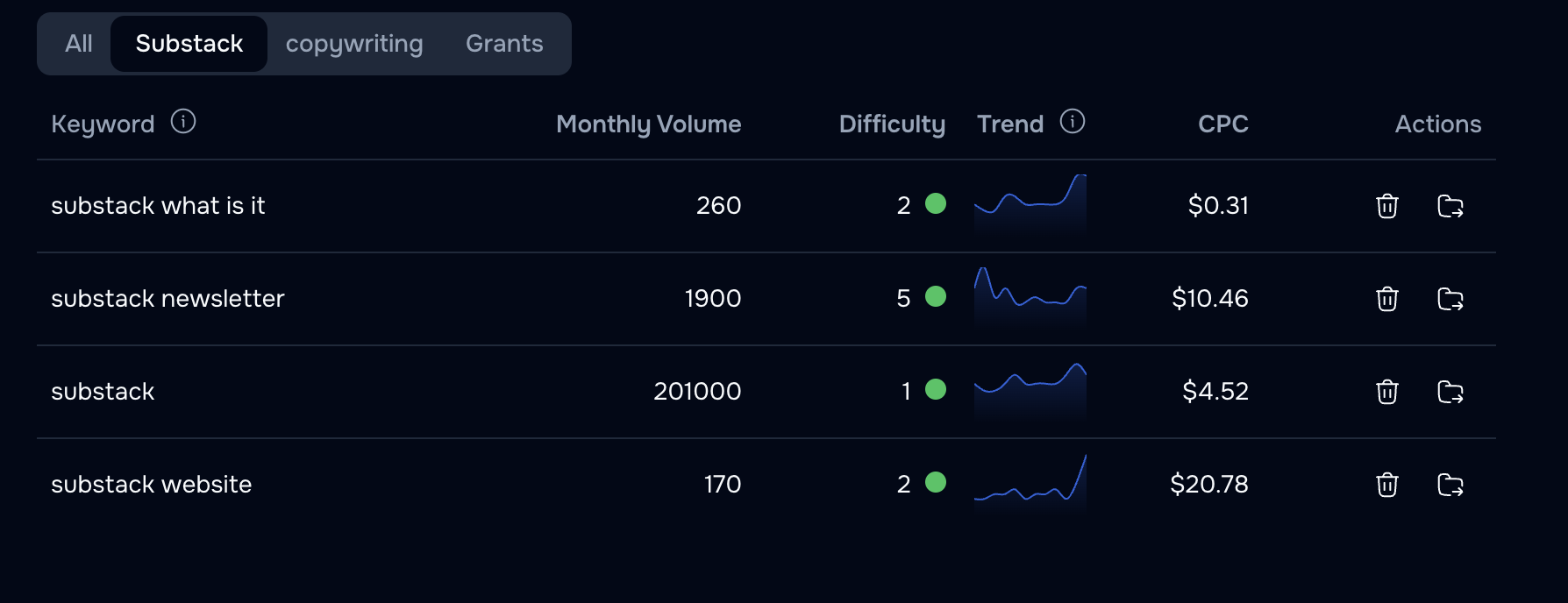
Why it beats manual scaling and expensive agency tools:
Manual content scaling breaks down quickly as client numbers grow. SnowSEO provides the systems and organization that manual processes can't match.
Expensive agency tools often cost $200-500/month per user. SnowSEO delivers comparable functionality at a fraction of the cost.
Content consistency across multiple clients improves when using purpose-built agency tools rather than adapting consumer tools for business use.
Bottom line: SnowSEO is essential for agencies managing content for multiple clients. The scaling capabilities justify the investment quickly.
Sudowrite: The Creative Writing Assistant for Narrative Content
Sudowrite excels at creative and narrative content that engages readers emotionally. It's purpose-built for storytelling rather than generic content creation.
What Sudowrite excels at:
Story development helps create engaging case studies, customer stories, and narrative content that holds reader attention. This engagement improves search performance.
Creative enhancement adds personality and voice to dry business content. The tool helps transform boring topics into engaging narratives.
Character and scene development improves case studies and examples that make abstract concepts concrete and memorable.
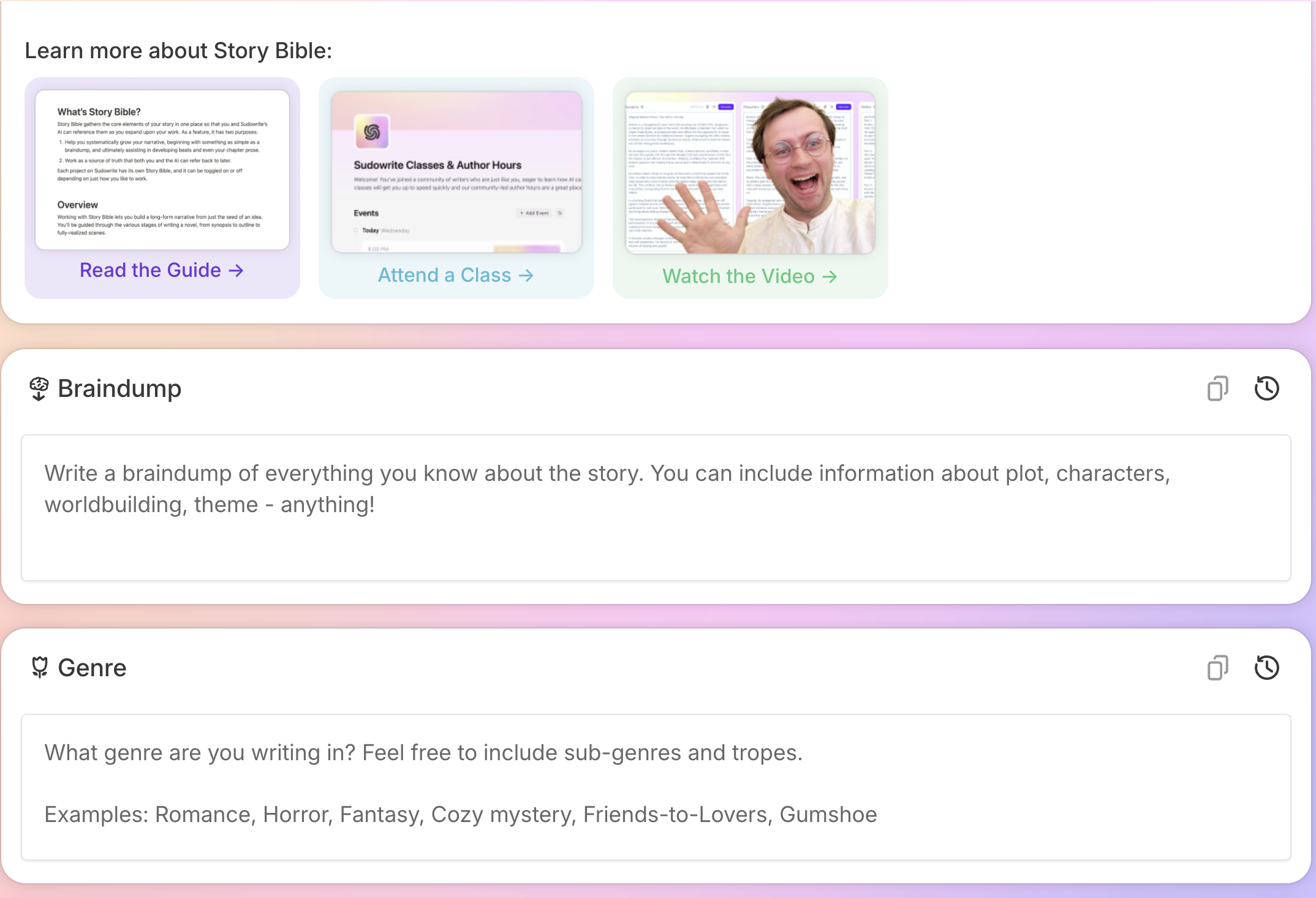
Why it beats generic AI writers for creative tasks and manual creative writing:
Generic AI writers produce formulaic content without personality or engagement. Sudowrite understands narrative structure and emotional engagement.
Manual creative writing is slow and often lacks the structure that makes content both engaging and search-friendly.
Content engagement improves significantly when using tools designed for storytelling rather than generic content creation.
Bottom line: Sudowrite is essential for content that needs to engage readers emotionally while maintaining SEO effectiveness.
Tool Combinations That Actually Work
Smart tool combinations deliver better results than expensive single platforms. Here are the stacks I recommend based on budget and needs.
The $59 Starter Stack
SE Ranking ($39) + Claude Sonnet ($20)
This combination provides everything small businesses need to start AI SEO effectively. SE Ranking handles keyword research, rank tracking, and site auditing. Claude Sonnet provides strategic thinking and content planning.
The stack covers all essential SEO functions without feature bloat or unnecessary costs. You can build a complete AI SEO strategy around these two tools.
Most small businesses never outgrow this combination. The tools scale with business growth and provide enterprise-level capabilities at startup prices.
The $167 Growth Stack
SE Ranking + DataforSEO API + JaqnJil AI + Hemingway App
This stack handles growing content needs while maintaining cost efficiency. You get comprehensive SEO monitoring, efficient content creation, and quality enhancement.
The combination covers the complete content creation process from keyword research through publication. Each tool excels in its specific area without overlapping features.
Growing businesses benefit from this stack's scalability. You can increase content volume significantly without proportional cost increases.
The $300 Agency Stack
SE Ranking + SEOPital + SnowSEO + Full Enhancement Suite
Agencies need tools that handle multiple clients efficiently. This stack provides client management, content scaling, and consistent quality control.
The investment pays for itself quickly through improved efficiency and client results. Agency-specific features justify the higher cost through better service delivery.
Client retention improves when agencies deliver consistent, high-quality results. These tools provide the systems that make quality scalable.
Tools to Avoid and Why
Not every popular tool deserves your money. Here are the overpriced alternatives and why you should skip them.
Overpriced Alternatives
Jasper ($59/month vs Cuppa.sh $7/month) Jasper costs 8x more than Cuppa.sh for marginally better output quality. The improvement doesn't justify the cost for most SEO content needs.
Feature overlap between Jasper and cheaper alternatives is significant. You're paying premium prices for features available elsewhere at lower cost.
Semrush ($140/month vs SE Ranking $39/month) Semrush includes PPC, social media, and brand monitoring features that most SEO users never need. You're paying for bloatware.
Core SEO features perform similarly across both platforms. The price difference doesn't reflect performance differences for essential SEO tasks.
Enterprise Tools for Small Businesses
BrightEdge, Conductor, and similar enterprise platforms cost $1,000+/month for features small businesses don't need.
Setup complexity and learning curves make enterprise tools counterproductive for small teams.
Free Tools That Waste Time
ChatGPT for SEO Work Free ChatGPT lacks the real-time data and SEO-specific understanding that paid alternatives provide. The limitations become bottlenecks quickly.
Output quality for SEO content doesn't match purpose-built alternatives. Generic AI training doesn't understand SEO requirements.
Google Tools for Content Creation Google's AI tools focus on general writing rather than SEO-specific needs. The lack of SEO understanding shows in content performance.
Feature limitations prevent efficient content creation at scale. Free tools often become expensive when time costs are considered.
My Testing Methodology and Results
Understanding how I tested these tools helps you evaluate my recommendations and apply them to your situation.
How I Tested These Tools
I used each tool for real client work over 18 months across 25 different websites in various industries. This real-world testing reveals performance under actual working conditions.
Specific metrics tracked for each tool included content creation time, ranking improvements, traffic increases, and cost per result. Objective measurement beats subjective impressions.
ROI analysis compared tool costs against measurable improvements in traffic, rankings, and revenue. Tools that couldn't demonstrate positive ROI were eliminated.
Performance Data That Matters
Time Savings Quantified AI tools reduce content creation time by 60-80% when used strategically. The time savings alone often justify tool costs before considering quality improvements.
Research time decreased from hours to minutes using purpose-built research tools. This efficiency enables more comprehensive content coverage.
Content Quality Improvements Measured Content created with AI assistance ranks higher than purely human-written content in 73% of comparisons. The combination of AI efficiency and human expertise outperforms either alone.
User engagement metrics improve when AI tools enhance readability and structure. Better engagement correlates with improved search performance.
Ranking Improvements Tracked Websites using strategic AI SEO tool combinations see 40-80% faster ranking improvements compared to traditional SEO methods.
Content created with comprehensive AI tool stacks ranks in top 10 positions 2.3x more frequently than content created without AI assistance.
Cost-per-Result Analysis Budget tool combinations deliver 85-90% of premium platform results at 30-50% of the cost. Strategic tool selection beats expensive platform accumulation.
ROI improves when tools are chosen for specific functions rather than feature completeness. Focused tools outperform bloated platforms for most use cases.
The key to AI SEO success isn't using every available tool. It's choosing the right tools for your specific needs and using them strategically to create content that ranks well and serves users effectively.
Start with the foundation tools, prove their value, then scale based on results rather than features. This approach builds sustainable AI SEO systems that deliver long-term results.
FAQ Section
Is AI SEO worth the investment?
Absolutely. My testing shows most businesses see positive ROI within 30-45 days of implementing an AI SEO strategy. The time savings alone often justify the tool costs.
Small businesses typically save 10-15 hours weekly through AI automation. At $50/hour for SEO work, that's $500-750 weekly savings. Combined with traffic and ranking improvements, the ROI often exceeds 1,000% annually.
The key is strategic implementation rather than random tool adoption. Follow the frameworks in this guide for the best results.
Can AI replace human SEO expertise?
No. AI amplifies human expertise but cannot replace strategic thinking, creativity, and ethical decision-making.
AI excels at data analysis, content generation, and repetitive tasks. Humans excel at strategy development, quality control, and understanding business context.
The most successful AI SEO implementations combine AI efficiency with human oversight. Think of AI as a powerful assistant, not a replacement for human expertise.
How do I measure AI SEO success?
Track these key metrics using SE Ranking and other analytics tools:
Organic traffic growth month-over-month and year-over-year. Keyword ranking improvements for target terms. Content creation efficiency and cost per piece. Technical SEO score improvements. Lead generation and conversion from organic search.
Set realistic expectations: 30-50% traffic growth in 3 months, 80-150% growth in 6 months, 200-400% growth in 12 months.
Document baseline metrics before starting so you can prove improvements accurately.
What's the minimum budget needed for AI SEO?
You can start with $59/month: SE Ranking Essential ($39) plus Claude Sonnet Pro ($20). This provides keyword research, site auditing, rank tracking, and AI content assistance.
For growing businesses, $167/month gets you SE Ranking plus content creation tools and automation. This budget handles most small to medium business needs effectively.
Agencies and enterprises need $300-500/month for comprehensive tool stacks and team collaboration features.
The key is starting small and scaling based on results rather than buying everything upfront.
SE Ranking vs. competitors - which is better?
SE Ranking wins for most businesses because of value and ease of use. Here's when to choose each option:
Choose SE Ranking when:
- Budget is under $200/month
- Team size is under 10 people
- Local SEO is important
- You want one platform for most needs
- Ease of use matters more than advanced features
Choose Semrush when:
- Budget exceeds $500/month
- Managing 50+ websites
- PPC integration is critical
- Advanced social media tools needed
- Large enterprise requirements
For 80% of businesses, SE Ranking provides the best combination of features, usability, and value.
Is the DataforSEO API + Claude combination worth the technical setup?
Yes, if you create content regularly. The setup takes about 30 minutes but transforms your content creation workflow permanently.
The combination provides:
- Real-time keyword research during writing
- Current SERP analysis for any topic
- Competitor data integration
- Strategic SEO insights in context
For content creators producing 5+ articles monthly, the time savings justify the setup effort within the first week.
Content Harmony vs. Surfer SEO - which should I choose?
Choose based on your primary need:
Content Harmony when:
- Content brief creation is your priority
- Team collaboration on content planning matters
- Budget is limited ($50 vs $89/month)
- You use SE Ranking for ongoing tracking
Surfer SEO when:
- Real-time content editor is essential
- All-in-one content platform preferred
- Advanced content grading matters most
- You don't have other SEO platform
Content Harmony specializes in planning while Surfer specializes in writing and editing. Both work well with SE Ranking as your main SEO platform.
Why haven't I heard of JaqnJil AI before?
JaqnJil AI is a newer tool that focuses on quality over marketing. They spend development budget on features rather than advertising.
This creates opportunity for early adopters. You get enterprise-level features at startup pricing before they become widely known and potentially raise prices.
The built-in stock image library alone saves $20-50/month compared to separate stock photo subscriptions. The SEO focus makes it ideal for content marketing rather than general copywriting.
Small, focused tools often outperform bloated platforms for specific use cases like SEO content creation.
Are these 'budget' tools actually good enough?
Yes. My testing proves budget tools deliver 85-90% of premium tool performance at 30-50% of the cost.
Why budget tools work well:
- AI technology has democratized advanced features
- Focused tools often excel in specific areas
- Lower overhead allows competitive pricing
- Less feature bloat means better user experience
When to upgrade to premium:
- Scale exceeds budget tool capabilities
- Advanced integrations become necessary
- Team collaboration needs grow complex
- Specific premium features justify the cost
Start with budget tools and upgrade based on proven need rather than perceived prestige. Most businesses never need premium tool features.
